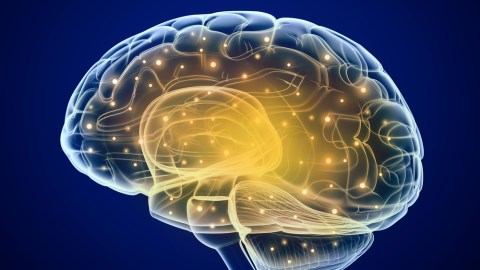Will Electric Brain Stimulation Become the New Coffee?

What’s the Latest?
The Air Force is testing a futuristic way to help its soldiers learn faster and stay concentrated longer. The method involves delivering a mild electric current to the brain, specifically the motor cortex, while a specific task is being performed, e.g. identifying friendly aircraft from foes in a flight simulator. By stimulating the brain mid-task and then reversing the current to inhibit the prefrontal cortex, which is involved in conscious thinking, soldiers scored 250 percent better on their tests than a control group that received no brain stimulation.
What’s the Big Idea?
Called trans-craniel direct current stimulation, or tDCS, the process of stimulating the brain has been known to positively affect people with depression since the 1980s. Today, scientists believe the stimulation can narrow the gap between when someone is introduced to a skill and when they master the motor skills it requires. Like learning to ride a bike, for example, we begin wobbly and are unsure how to balance ourselves, but the task eventually becomes second nature. Scientists and the military want to shorten this learning curve so that complex tasks, such as working in an air traffic control booth, can be done more effectively.





